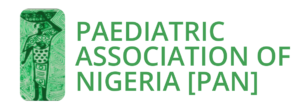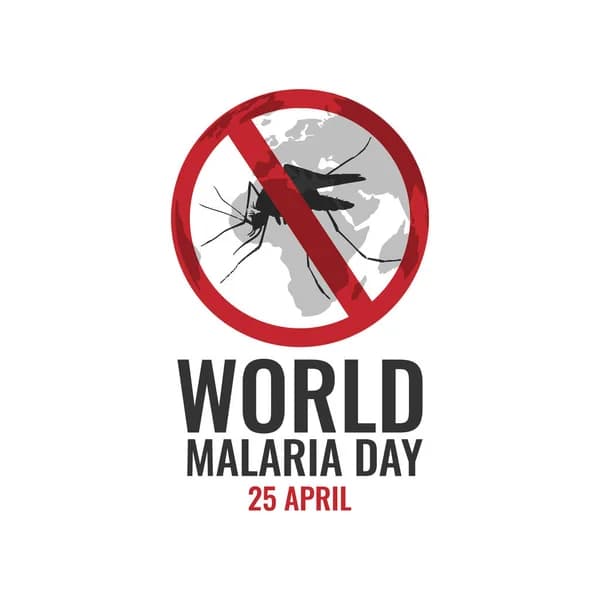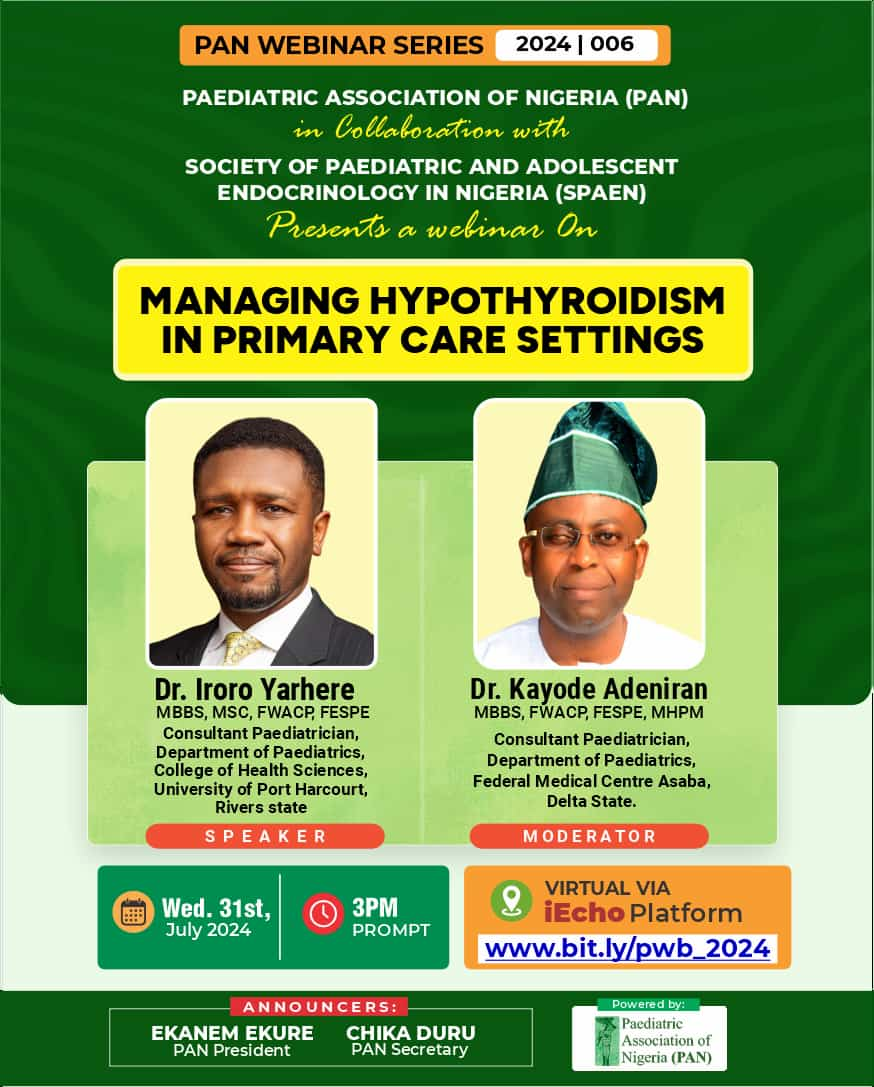PAEDIATIATRIC ASSOCIATION OF NIGERIA WORLD MALARIA DAY 2024 PRESS RELEASE
The Paediatric Association of Nigeria joins the rest of the world to observe the World Malaria Day set as 25th April 2024. This is the day set aside to support a dynamic social movement and call attention for the strongest pollical will by government, partners, and all stakeholders in the fight against malaria. The theme for this year’s WMD which is “ACCELERATING THE FIGHT AGAINST MALARIA FOR A MORE EQUITABLE WORLD: LET’S CHANGE THE NARRATIVE NOW” is apt and timely.
Despite the investments and progress made in the fight against malaria, children continue to be disproportionately affected by malaria. For instance, in Nigeria, in 2021, there were an estimated 68 million malaria cases and 194,000 deaths due to the disease in Nigeria.
Impact of Malaria on the Children:
- Malaria affects children disproportionately. About 4 out of 5 malaria cases in – Nigeria occurs in children less than 5 years. A significant portion of the remaining cases are likely to occur in children aged 5-12 years and pregnant women. It is the major cause of morbidity and mortality among children in Nigeria.
- Studies have revealed that malaria is responsible for approximately 60% of outpatient visits and 30% of admissions in the country.
- Among children under five years old, malaria is the single largest cause of death in Nigeria, followed by diarrhoea and pneumonia.
- Prevalence is highest among children aged 48 to 59 months (four- and five-year-olds).
- Malaria in pregnancy also contribute to neonatal mortality and increased incidence of Low birth weight.
- Children also suffer the consequences of various barriers and human right challenges in the deployment of anti-malarial interventions, such as:
- Gender inequalities, discrimination, and harmful gender norms also heighten the risk of contracting malaria, particularly for pregnant women and impact on their children.
- Refugees, migrants, internally displaced people, from conflicts, insurgency and insecurity impacts significantly on children who have been victims of mass kidnapping.
- Climate change and humanitarian emergencies further displace populations, with children at the receiving end and making them more vulnerable to the disease.
Current Interventions and Strategies:
The Paediatric Association of Nigeria, notes with delight that over the years there has been efforts to reduce malaria prevalence and related mortality among children through deployment of vector control measures like distribution of insecticide treated bed nets; other chemo-preventive measures such as chemoprevention in pregnancy, and seasonal malaria chemoprevention; and strengthening use of diagnostic and improving access to antimalarial treatments. The country is also implementing, with support from various partners, data-informed strategies to tailor malaria interventions sub-nationally. The country established an integrated national malaria data repository accessible at the local government level.
These efforts notwithstanding, we must address outstanding barriers and ensure that the malaria response equitably addresses the disproportionate burden faced by the Nigerian children. Hence the call to change the narrative on such barriers if we must accelerate malaria elimination in Nigeria.
Changing the narrative about overcoming barriers to equity in malaria for children
- Primary Health Care: Addressing the core principles of the Alma Ata declaration on primary health care will help to bring both preventative and curative services to the Nigerian child.
- Multi-system approach: PAN calls on government to adopt a systems approach to malaria, through the collaboration across, agencies, ministries, and department. For example, Ministries of Education to expand curriculum on malaria; Ministry of Environment to address environmental development and overall improvement in quality of environment, FMoH addressing health and nutrition, among others ensure improvements in improve malaria preventing issues that will help to address the burden of malaria.
- Protection for the children through safe and malaria free schools: There is a need to reinforce surveillance and securing in schools and promote an environment that will reduce the risk of malaria in schools through ensuring clean environment, access to insecticide treated nets for those in boarding intuitions and facilities for diagnosis and urgent treatment of malaria in school clinics.
- The roll out of the malaria vaccine: The PAN would like to underscore the added potential of the malaria vaccine and its planed rollout by the government. PAN also wishes to call on all her members to support the rollout of the vaccine and various chemo-preventive interventions.
- Address access gaps to quality management of malaria: The Association calls her members and other healthcare providers to embrace and promote rational practices on malaria diagnosis and treatment, such as Testing, Treatment with ACTs, management of severe malaria and Tracking (reporting the cases) while also providing leadership for capacity development among health workers.
- Research to address malaria in children: The PAN will partner with government, and other researchers to continue generating needed evidence to guide recommendations on diagnosis and treatment of malaria including options to address both antimalarial and insecticide resistance.
- Increase domestic resource mobilization: PAN calls on all tiers of government to ensure directly significantly budgetary allocation on the malaria elimination efforts while calling on the private sector to do more in their corporate social responsibilities in the fight against malaria.
Dr. Ekanem Ekure
President,
Paediatric Association of Nigeria.





